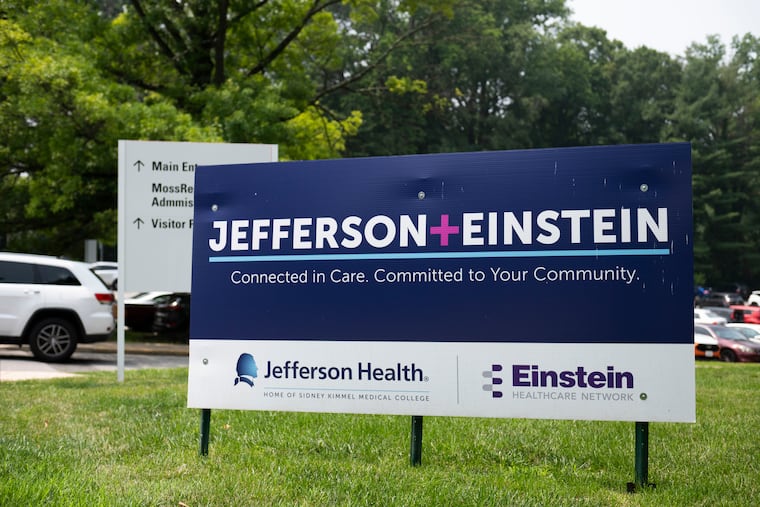Jefferson Health is laying off 1% of its employees, or about 400 positions, this week
The job cuts are part of an effort to restore profitability in the 18-hospital not-for-profit system.

Jefferson Health, the largest health system in the Philadelphia region by number of hospitals, this week is reducing its workforce by 1%, or about 400 positions, in a bid to curb its financial losses by eliminating duplication in the not-for-profit system that grew rapidly though acquisitions before the pandemic.
The cuts are part of a plan to reduce costs by $300 million and concentrated in corporate and administrative positions, Jefferson CEO Joseph G. Cacchione said Monday in a statement emailed to The Inquirer.
They include the elimination of an unspecified number of vacant positions.
“This decision was not made lightly, and Jefferson is not alone in needing to make this challenging choice,” Cacchione said, citing widespread financial pressures on health systems and universities.
“There are decreased patient volumes at the same time as double-digit increases to costs,” Cacchione said.
Employees affected by cuts will be told Tuesday, Wednesday, and Thursday. Jefferson’s health system employs 42,000 people, according to its website.
Credit rating downgrade in March
The layoffs come four months after Moody’s Investors Services reduced Jefferson’s credit rating by one notch, citing increased debt and industrywide higher expenses that will make it difficult for the health system based in Center City to rebuild cash reserves.
The new rating of A3 is still strong, but it was Jefferson’s second downgrade from Moody’s since it embarked on a broad expansion from 2015 through 2021, growing from three to 18 hospitals and adding another university and a Medicaid insurance company.
As Jefferson exploded in size during its years under former CEO Stephen K. Klasko, its profitability weakened. Then the coronavirus pandemic hit. The accompanying higher costs for labor, pharmaceuticals, and other supplies saddled Jefferson and many other health systems nationwide with financial losses.
“One of the reasons we are at an inflection point now is that we have never rationalized the size of our workforce through four significant mergers,” Cacchione said in a memo to Jefferson employees.
A shift toward outpatient services is one of the key forces Jefferson and other hospital systems are grappling with, Cacchione said.
Excluding unusual circumstances, such as the sale of businesses and federal COVID aid, Jefferson has had operating losses for four straight years.
Jefferson told Standard & Poor’s that it expected to finish this year with an $80 million operating loss. That would be an improvement over the $117 million operating loss Jefferson reported for the nine months that ended March 31.
Jefferson is scheduled to report financial results for the year that ended June 30 next month.